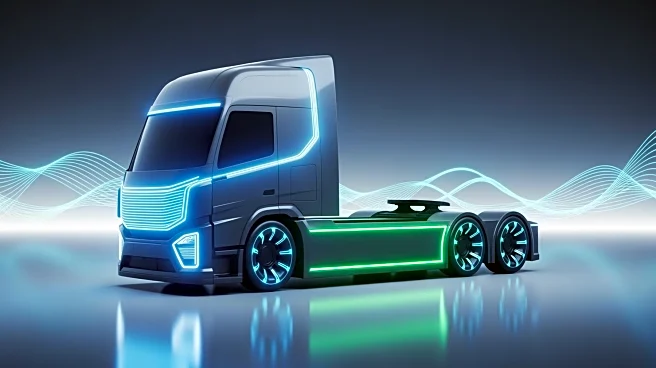What's Happening?
China is rapidly transitioning its diesel truck fleet to electric models, a move that could significantly alter global fuel demand and the future of heavy transport. By mid-2025, battery-powered trucks
accounted for 22% of new heavy truck sales in China, up from 9.2% in the same period in 2024. This shift is driven by falling costs and government incentives, such as a scheme offering up to $19,000 for trading in old vehicles for newer or electric models. Investments in charging infrastructure are also boosting demand, with major logistics hubs adding dedicated charging stations along key freight routes. The transition is expected to reduce diesel consumption and reshape LNG demand, as electric trucks outsell LNG models in China.
Why It's Important?
The shift to electric trucks in China, the world's second-largest trucking fleet, could have profound implications for global energy markets. As diesel consumption declines, the demand for LNG may also be affected, potentially altering regional diesel trade flows. This transition is part of a broader global energy shift towards cleaner technologies, impacting industries reliant on fossil fuels. The move could also influence international trade dynamics, as China positions itself as a major player in the global electric truck market, exporting to regions like the Middle East, North Africa, and Latin America.
What's Next?
China's electric truck sector is expected to continue growing, with plans to export to Europe by 2026. The country is also planning new emission standards that will make it challenging for companies relying solely on fossil-fuel vehicles to comply. This could further accelerate the shift to electric trucks and influence global policies on emissions and clean energy. As China strengthens its position in the electric truck market, other countries may need to adapt to changing trade flows and energy demands.









